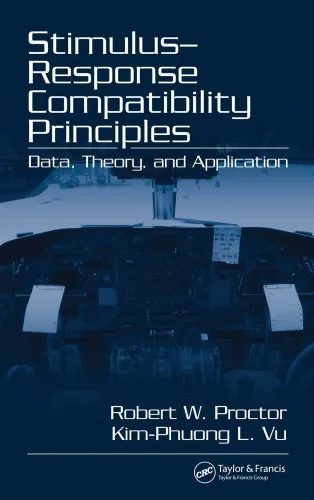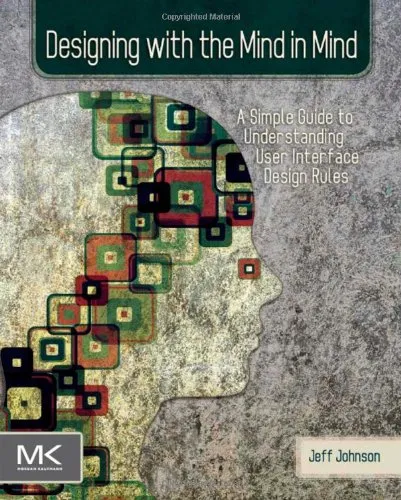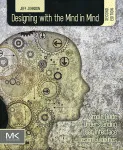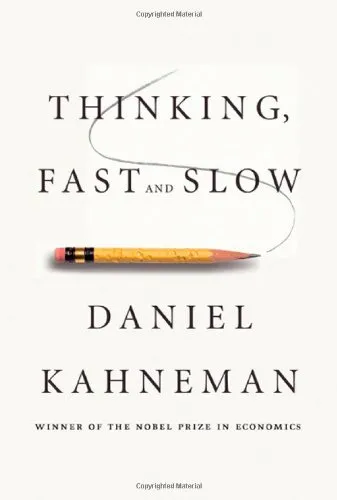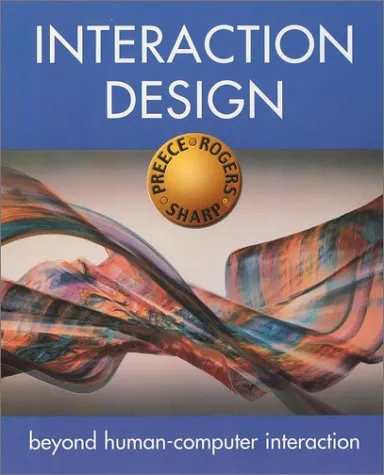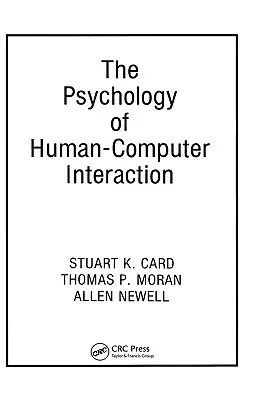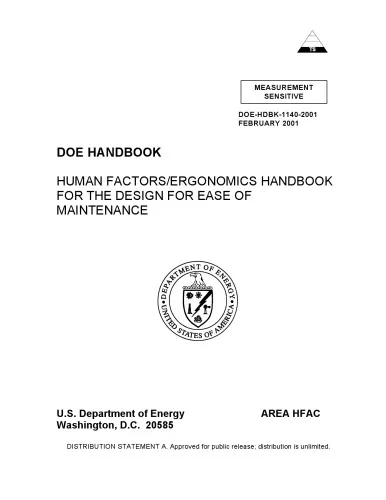Stimulus-Response Compatibility Principles: Data, Theory, and Application
4.0
Reviews from our users

You Can Ask your questions from this book's AI after Login
Each download or ask from book AI costs 2 points. To earn more free points, please visit the Points Guide Page and complete some valuable actions.Related Refrences:
Introduction to Stimulus-Response Compatibility Principles
Welcome to a comprehensive exploration of 'Stimulus-Response Compatibility Principles: Data, Theory, and Application', a groundbreaking book that delves into the complexities and nuances of stimulus-response (S-R) compatibility. Authored by Robert W. Proctor, this book serves as an essential resource for researchers and practitioners alike, providing valuable insights into the principles that govern how we interact with our environment.
Detailed Summary of the Book
The book is a profound investigation into the mechanisms that underlie human interaction with stimuli, particularly focusing on the theories and data surrounding stimulus-response compatibility. It examines the efficiency of human responses to various stimuli based on their spatial and conceptual arrangements. Proctor systematically unpacks fundamental theories, supported by empirical evidence, to provide a full picture of how S-R compatibility affects performance in diverse contexts.
Starting with a historical perspective, the book traces the evolution of S-R compatibility research, spotlighting key studies and their contributions to contemporary understanding. It then transitions into a meticulous analysis of core concepts, including perceptual-motor compatibility, cognitive processes, and decision making.
Beyond theoretical foundations, the book presents pragmatic applications in fields such as ergonomics, human factors engineering, and user-interface design. Through case studies and examples, it demonstrates the relevance of S-R compatibility principles to real-world problems, underscoring the practical utility of this knowledge.
Key Takeaways
- The book emphasizes the importance of aligning stimuli and responses to enhance performance efficiency.
- It highlights empirical research methods and findings that offer robust evidence for S-R compatibility effects.
- It imparts critical insights into designing user-friendly interfaces and systems that exploit compatibility principles.
- The exploration of cognitive processes and their implications for human-machine interaction is thoroughly examined.
- The book provides a comprehensive framework for analyzing and applying S-R compatibility in practical scenarios.
Famous Quotes from the Book
"Stimulus-response compatibility is not just a scientific curiosity; it's a principle with profound implications for our everyday interactions with technology."
"Understanding the fundamental principles of S-R compatibility allows us to design systems that align with human cognitive processes, thereby improving efficiency and reducing error."
Why This Book Matters
This book is crucial for advancing the field of cognitive science and ergonomics. It not only elucidates the underlying theories with clarity and precision but also bridges the gap between abstract research and tangible applications. By reading this book, industry professionals and academics can enhance their understanding of S-R compatibility principles, leading to the design of more intuitive interfaces and environments that foster improved human performance.
Furthermore, the book's relevance extends beyond academia, offering valuable insights for anyone interested in the intersections of psychology, technology, and design. Its in-depth analysis of compatibility principles equips readers with the knowledge to critically assess and optimize human-system interactions, making it an invaluable reference for shaping future innovations.
Free Direct Download
You Can Download this book after Login
Accessing books through legal platforms and public libraries not only supports the rights of authors and publishers but also contributes to the sustainability of reading culture. Before downloading, please take a moment to consider these options.
Find this book on other platforms:
WorldCat helps you find books in libraries worldwide.
See ratings, reviews, and discussions on Goodreads.
Find and buy rare or used books on AbeBooks.
